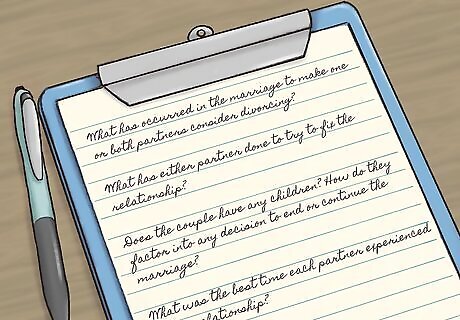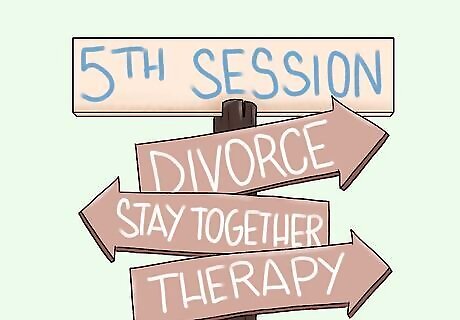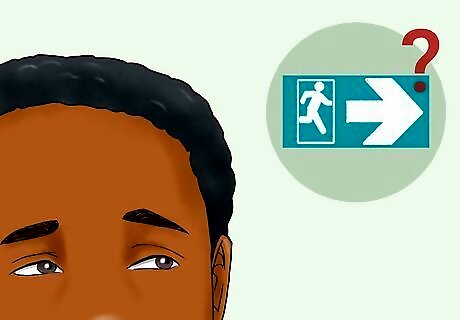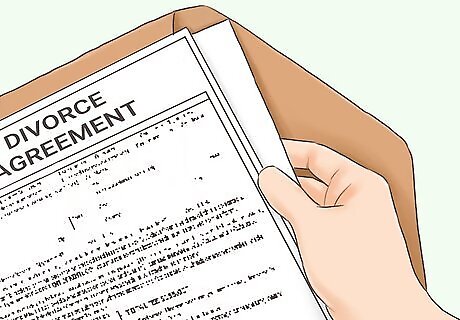
views
- Discernment counseling is short-term counseling to help couples decide whether to break up or stay together.
- The goal of discernment counseling is not to save the marriage, but to help each partner understand the problems in their marriage and whether they want to save it.
- There are 3 outcomes to discernment counseling: couples will divorce, stay together, or postpone making a decision and commit to 6 months of couples therapy.
What's discernment counseling?

Discernment counseling is unlike standard couple's therapy because it's designed for couples considering a break up. A couple leaning towards divorce (or a couple in which one partner is “leaning out,” i.e., considering leaving, and the other is “leaning in,” i.e., trying to make the relationship work) may seek discernment counseling to figure out if they want to continue the relationship at all. Discernment counseling may be as brief as 1 session or as long as 5 sessions. Discernment counseling isn't the same as traditional couples counseling, where the goal is to bring a couple closer together. Discernment counseling helps the couple decide if they even want to work on their relationship at all. Couples don’t need to be married to attend discernment counseling. Unmarried committed partners may seek discernment counseling, as can engaged couples who aren’t sure about marrying. There are 3 potential outcomes to discernment counseling: 1) The couple divorces (or breaks up). 2) The couple stays together. 3) The couple agrees to attend couples therapy for 6 months to see if they can improve the relationship. During this time, they won’t separate.
Discernment Counseling Techniques

One-on-one therapy Discernment counselors may see couples individually for one-on-one sessions in order to discuss the relationship and each partner’s goals for the future. Therapists may talk to individuals “leaning out” about why they want to leave and what may have contributed to the breakdown of the marriage. They may speak to individuals “leaning in” about why they want to continue the relationship and what may need to change for the marriage to succeed. In one-on-one therapy, each partner will focus on their own contributions to the marriage’s problems, as well as how those problems could be resolved, whether the marriage continues or not. Couples in individual discernment counseling sessions may explore communication techniques to improve how they talk to their partner. Because the focus of discernment counseling is for each partner to decide if they want to continue the relationship, individual counseling is more private than it may be in couples counseling, where a couple’s secrets may be laid out in the open in order to improve the relationship. For example, if one partner admits to having an affair and cites this as a reason they don't wish to continue their current relationship, the therapist won’t tell their partner.

Relationship assessment For couples considering staying together, a discernment counselor may have them discuss what their ideal future would look like together and how they can achieve that ideal. They will discuss what’s contributed to the current state of their relationship and what they will each need to change in order for the relationship to work. During this session, couples may be open about what they need their partner to change or work on in order for the relationship to continue.
What to Expect from Discernment Counseling

In the first session, counselors will evaluate the relationship. Discernment counselors will usually ask specific questions about the state of a couple’s relationship in the first session to understand the couple’s motivation for seeking therapy and their goals for the relationship. Depending on how the couple answers these questions and how they feel at the end of the session, they may choose to meet for a second session or not. Discernment counselors will often ask variations on the following questions: What has occurred in the marriage to make one or both partners consider divorcing? What has either partner done to try to fix the relationship? Does the couple have any children? How do they factor into any decision to end or continue the marriage? What was the best time each partner experienced in the relationship?

The aim of discernment counseling is to make a decision in 5 sessions. Unlike in traditional marriage counseling, which couples may attend indefinitely with the mutual goal of improving their relationship, the goal of discernment counseling is simple: to decide whether to break up or continue the relationship. Thus, couples in discernment counseling will work to understand a relationship’s problems and how they feel about those problems, rather than specifically how to solve those problems. Part of the benefit of discernment counseling over traditional counseling is that “leaning-out” partners, who may not want to commit to an indefinite number of sessions, will be more likely to attend therapy when they know there will be, at max, 5 sessions. Couples who come out of discernment counseling committed to staying together may then choose to attend couples counseling to work on their relationship.
Benefits of Discernment Counseling

Discernment counseling can help couples overcome past offenses. Couples may use discernment counseling to discuss subjects that are difficult to face. For instance, if a relationship is struggling because of infidelity, resentment, or just a general feeling of having grown apart, a couple may find closure in discernment counseling.

It can strengthen a couple’s relationship. Couples who decide to stay in their marriage after discernment counseling usually do so with better communication skills and greater appreciation for one another. Discernment counseling can help couples develop a plan for saving their relationship and perhaps navigating future problems.

Couples may learn to understand one another, even if they disagree. Through discernment counseling, couples will work to understand their own role in the current state of their relationship as well as their partner’s perspective on their relationship. Even if a “leaning-in” partner and a “leaning-out” partner ultimately end up divorcing, discernment counseling may at least help them break up amicably (or neutrally). Discernment counseling may be especially helpful for couples with children who will still need to be in one another’s life after divorcing. Couples with children who attend discernment counseling prior to divorce report being appreciative of their time in therapy and greater co-parental cooperation after divorcing.

It may help couples gain greater self-awareness. Whether a couple stays together after discernment counseling or divorces, the individual partners will likely have gained a more acute understanding of their own behavior, motivation, and needs. This enhanced self-awareness may make it easier to heal from a divorce and for each partner to feel more confident in the decision to break up. The self-awareness gleaned through discernment counseling may also leave partners better equipped to engage in healthier romantic relationships in the future.
Does discernment counseling work?

It may help couples in which one partner is considering ending the relationship. While marriage counseling can benefit couples who are at least vaguely committed to saving their relationship, discernment counseling can be more effective for “mixed-agenda” couples—i.e., couples in which one partner is ambivalent about the relationship or actively considering leaving. This is because the goal of discernment counseling isn’t to save a marriage, but to help the individuals in the marriage understand what next steps to take in the relationship. Discernment counseling was developed in 2008 by Dr. William Doherty upon realizing that traditional counseling isn’t beneficial to couples in which one or both partners are ambivalent about the relationship or considering divorce.
Who is discernment counseling not for?

It isn’t for couples in which one partner knows they want to leave. In some cases, a person committed to divorcing their partner may agree to discernment counseling because they believe it will help their partner accept their decision to leave, or because the “leaning-in” partner has coerced them into attending. Discernment counseling is a last-ditch effort to reevaluate a relationship, so if one partner is committed to leaving, the couple is unlikely to benefit from discernment counseling. While discernment counseling may not be appropriate for couples who are definitely getting divorced, individual counseling may benefit both partners as they heal from a breakup.

It isn't for couples experiencing domestic violence. Discernment counseling is for couples struggling with problems that are potentially navigable. This type of counseling is not appropriate for relationships in which one or both people are suffering from physical, sexual, or emotional abuse from their partner. If you’re ever concerned for your safety or the safety of your children in your relationship, consider ending your relationship. Reach out to the National Domestic Violence Hotline and turn to trusted friends and family for support. Your safety and well-being is always the top priority.




















Comments
0 comment